Keywords:
innovative methodologies, research, native peoplesAbstract
Due to the questioning of the alleged ethical and epistemological neutrality in the exercise of scientific research, processes of reflexivity have been generated regarding research that takes as
its object of study the native peoples in Latin America. The critique of hegemonic mode of applying methodologies for knowledge of indigenous peoples has been immersed in review processes,
critical and novel approaches proposed elsewhere in where the understanding of reflective and methodological implications goal their approach to scientific research. In this paper start with allusion to the criticism of the hegemonic trend in the study of indigenous populations. Then I do a quick review of some methodological proposals such as evocative or participatory, horizontal, the doubly reflexive ethnography, auto-ethnographic, that early XXI in Mexico have been proposed to relocate and problematize both the place of the researcher and the objects of knowledge in the research process: the native peoples, especially in the educational environment. I conclude this work considering the implications, challenges and future prospects generated by these innovative methodological proposals.
Downloads
References
Corona & Kaltmeier, O. (2012). Introducción. En Corona & Kaltmeier. (Ed), En Diálogo. Metodologías horizontales en Ciencias Sociales y Culturales (pp. 11-21). Barcelona, España: Gedisa.
Dietz, G. (2012). Multiculturalismo, interculturalidad y diversidad en educación. Una aproximación antropológica. México: FCE.
Dietz, G. & Mateos, L. S. (2010). La etnografía reflexiva en el acompañamiento de procesos de interculturalidad educativa: un ejemplo veracruzano. Revista Cuicuilco 17(48), enero-junio, 107-131.
Kuhn, Thomas S. (1971) [1962].La estructura de las revoluciones científicas. México D.F.: Fondo de Cultura Económica.
Pratt, M. L. (1993). Imperial eyes. Travel writing and transculturation. London and New York: Routledge.
Podestá, R. (2007). Nuevos retos y roles intelectuales en metodologías participativas. Revista Mexicana de Investigación Educativa 12(34), 987-1014.
Podestá, R. (2002). Historias de tres pueblos maravillosos. El mundo de los niños nahuas a través de sus letras y dibujos, Puebla, México: Vicerrectoría de Investigación y Estudios de Posgrado e Instituto de Ciencias Sociales y Humanidades-Benemérita Universidad Autónoma de Puebla (BUAP).
Rea, P. (2013). Educación superior, etnicidad y género. Zapotecas universitarios, profesionistas e intelectuales del Istmo de Tehuantepec en las ciudades de Oaxaca y México. (Tesis doctoral. México: Centro de Investigaciones y Estudios Superiores en Antropología Social) (CIESAS).
Smith, L. T. (2011). Caminando sobre terreno resbaladizo. La investigación de los pueblos nativos en la era de la incertidumbre. En Denzin N. K. & Lincoln Y. S. El campo de la investigación cualitativa (Ed.) (pp. 190-230). Barcelona: Gedisa.
Smith, L. T. (1999). Decolonizing methodologies. Research and indigenous peoples. London and New York: Zed Books/University of Otago Press.
Speed, S. (1996). Entre la antropología y los derechos humanos. Hacia una investigación activista y comprometida críticamente. Revista Alteridades 16(31), enero-junio, 73-85.
Santos, B. (2011). Una epistemología del Sur. México: Siglo XXI.




